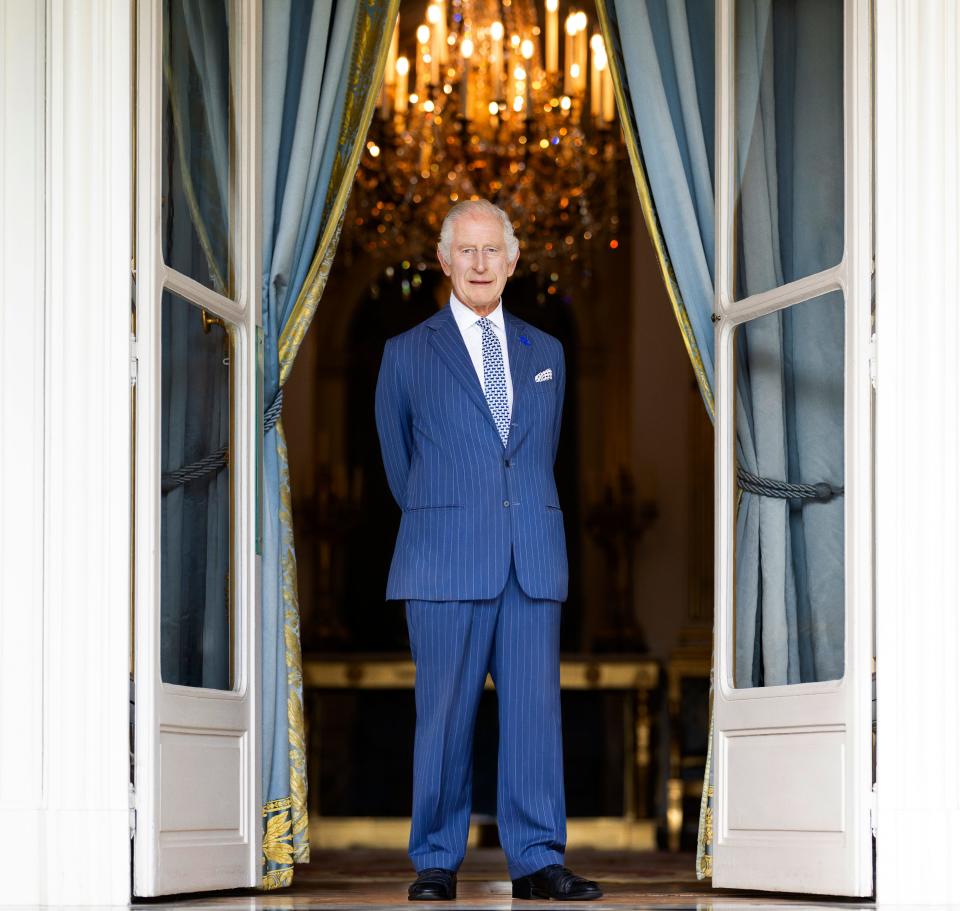King Charles diagnosed with cancer shortly after undergoing a prostate procedure

King Charles III has been diagnosed with cancer, Buckingham Palace confirmed.
In a statement, the palace said the diagnosis came after Charles underwent a prostate procedure.
The palace did not confirm the type of cancer Charles has.
King Charles III has been diagnosed with cancer, Buckingham Palace confirmed on Monday.
The diagnosis came after the British monarch underwent treatment for an enlarged prostate in January.
In a statement shared with Business Insider, the palace did not disclose Charles' form of cancer but said that the health issue was discovered while the UK royal was undergoing his prostate procedure.
"Subsequent diagnostic tests have identified a form of cancer," the statement read.
The palace said Charles began a "schedule of regular treatments" on Monday for his condition and has been advised by his medical team to refrain from "public-facing duties."
"Throughout this period, His Majesty will continue to undertake State business and official paperwork as usual," it added.

The statement also shared that Charles is "grateful" to his doctors for their "swift intervention" and said that was only possible due to his recent procedure.
"He remains wholly positive about his treatment and looks forward to returning to full public duty as soon as possible," the statement read.
It concluded by saying Charles chose to disclose his diagnosis publicly to "prevent speculation and in the hope it may assist public understanding for all those around the world who are affected by cancer."
Charles' youngest son, Prince Harry, is scheduled to fly to the UK from California later this week after speaking with his father about the diagnosis, a representative of the Duke of Sussex said in a statement to BI.
The representative did not add whether Harry will be joined by Meghan Markle.
Charles' cancer diagnosis comes after he was treated for an enlarged prostate
Urologists are delighted with Charles's transparency. Dr. Jamin Brahmbhatt, a board-certified urologist in Orlando, Florida, told BI that the news about Charles' health has provided an avenue for patients to ask him about their own prostate concerns.
"I think it's great that Charles and the palace are being proactive and so transparent about what's going on," Brahmbhatt said. "A lot of men wait too long to get their symptoms checked out, but I've seen a surge of men asking me about their prostate health in the past few weeks. I've had men asking me about Charles and about our Defense Secretary."
On January 17, the palace announced that Charles had an enlarged prostate and would be undergoing a "corrective procedure" later in the month.
At the time, the palace said his condition was "benign."

"In common with thousands of men each year, The King has sought treatment for an enlarged prostate," the statement read, adding that his public engagements would be postponed for a "short period of recuperation."
It was unclear from the statement whether the procedure was surgical.
"We are not providing further details about His Majesty's condition for privacy reasons," a palace spokesperson told Business Insider in response to a request for further comment following the announcement about his prostate procedure.
It's fairly common to detect cancer during an enlarged prostate procedure, Brahmbhatt told BI. "About 1% of men who get their prostate shaved are diagnosed with cancer during the procedure. It's not uncommon for a pathologist to get in there and find a spot that actually indicates something else."
Brahmbhatt said procedures to treat an enlarged prostate can reveal cancers of the prostate, penis, testicles, bladder, or kidneys. In rare cases, the procedure could detect cancer that has spread from other regions.
"The good thing is that if it's caught early, the treatments for cancers in the urological region are excellent. The life expectancy is completely normal," Brahmbhatt said.
Read the original article on Business Insider


